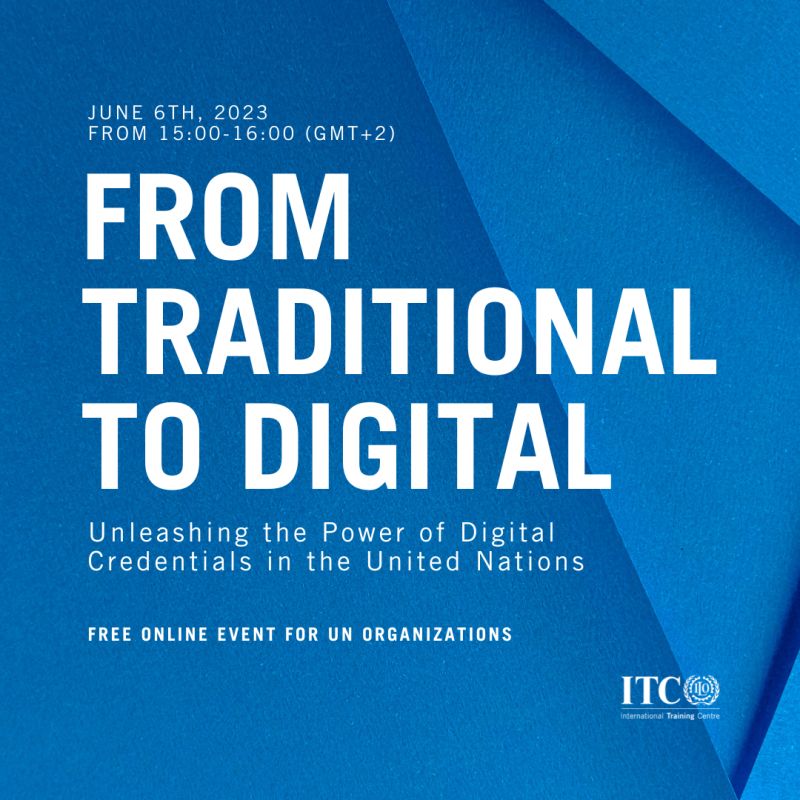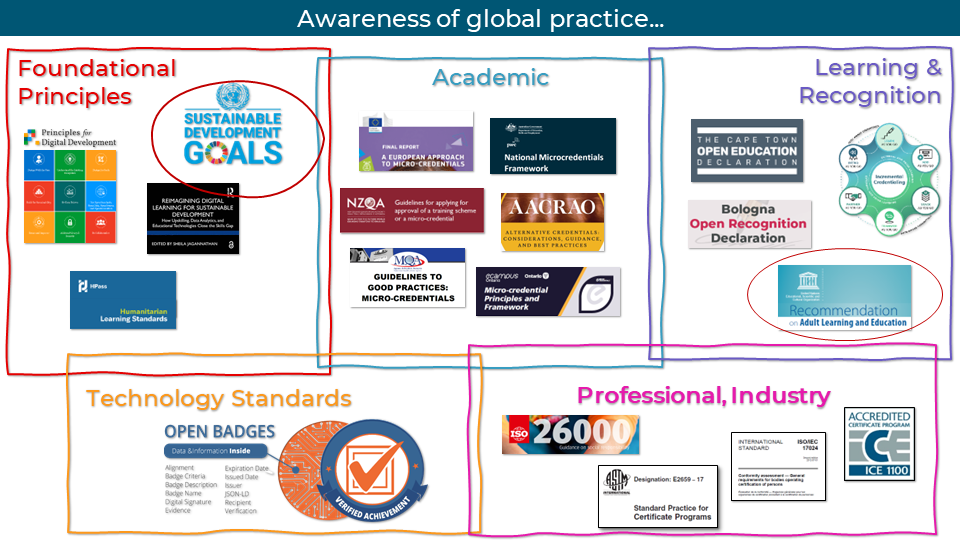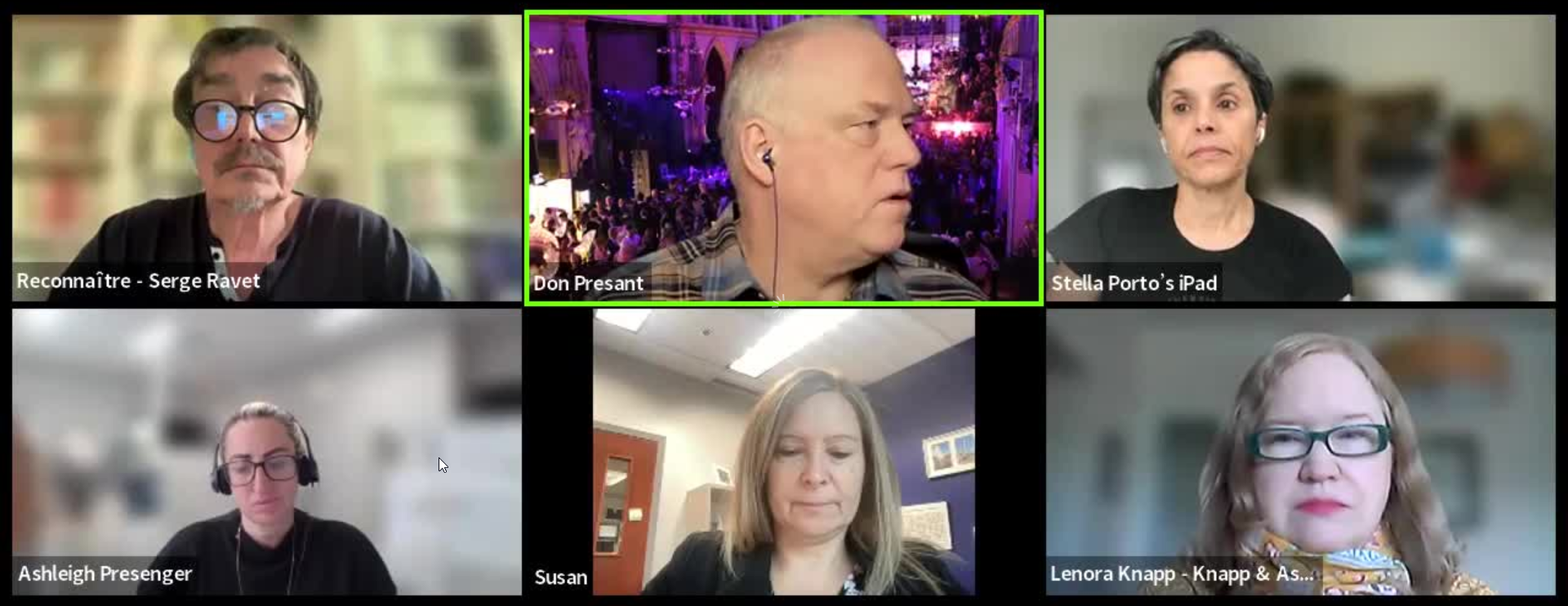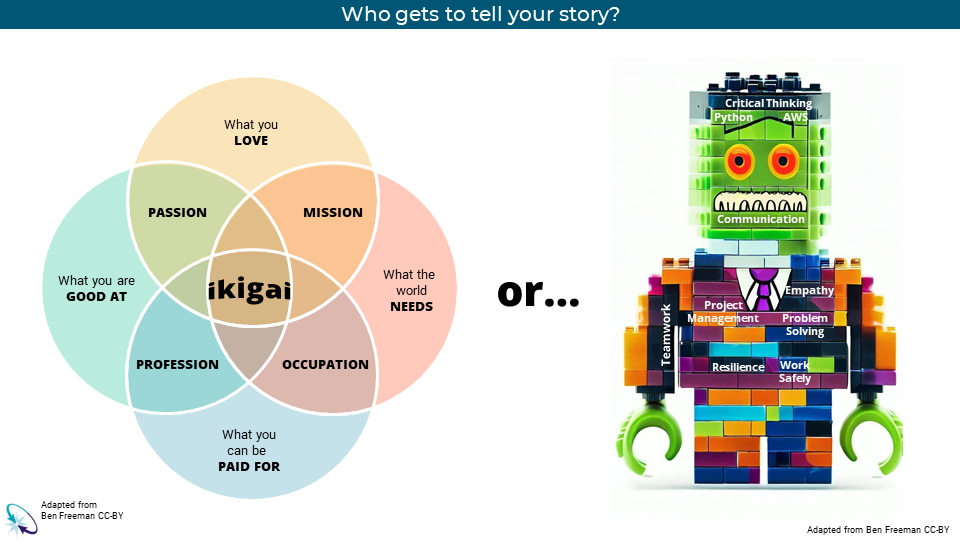Webinar for ITCILO to the UN community

Learning Agents partnered with common sense eLearning & training consultants in Vienna to deliver a webinar to the international UN community on digital credentials, based on research report the two organizations had produced for ITCILO, the training arm for the International Labour Organization, a UN organisation focused on support for Decent Work and sustainable development, especially in the Global South. The webinar was part of a longer program delivered by ITCILO.
The mandate for Learning Agents and common sense was to develop an advisory report with evidence-based recommendations for a framework for nonformal and even informal digital badges to “open up” recognition beyond assessed certificates and diplomas, while maintaining the integrity of their existing certification framework,leveraging the affordances of a specific credentialing platform they had already chosen.
This was an opportunity to venture into informal recognition of informal learning without devaluing their existing formal (i.e. rigorously assessed, ECTS inspired, though non-credit) and nonformal training framework. Our team included some recommendations for recognizing learning organizations with badges, building on the IDB Digital Credential Framework which Learning Agents co-developed the previous year for the Inter-American Development Bank.
ITCILO online version of our report

From the presentation deck
Key takeaways from the report
- Consider strategies to use digital badges to encourage self-directed co-created learning experiences for individuals, seeking opportunities outside of standard course delivery, such as work-integrated learning and events
- Explore opportunities for recognizing workplace and organisational development with digital badges that leverage the concepts of learning organisations which can combine interventions at the individual, institutional and systems levels
- Seek opportunities to integrate the issuing of digital badges with strategies (and platforms) for communication, collaboration and knowledge exchange as well as standard course delivery
- Consider thoroughly exploring the current data analysis opportunities of the digital credentialing platform and seek opportunities to analyse behaviour change that may result from non-training services
- Consider exploring elements of Community of Practice to build more persistent Social and Cognitive Presence among ITCILO learners
- Explore how certain types of digital badges may stack into certificates
- Consider establishing an explicit alignment between internal ITCILO learning and recognition terminology and global usage with Glossary of terms
- Consider strategies to generally align terminologies between ITCILO and third party service providers
- Consider exploring how Membership feature set and guidance might be adapted to analogous use cases in the Centre’s context, such as communities of practice, which incorporate softer concepts of membership and professional identity
- Consider using digital badges to recognize specific competencies/skills developed within training courses and programmes that may be immediately relevant to workplace needs.
- Consider providing content requirements and templates for digital badges based on a pragmatic taxonomy similar to what is currently provided for digital certificates.
- Consider exploration of awarding badges to “learning organisations”
- Consider adapting the Creative Commons brainstorming tools and content templates for ITCILO use
- Consider providing a Glossary of terms aligned with international usage as part of a public framework that would explicitly frame the Centre’s approach to Certificates and Digital Badges
- Consider developing a visual language to illustrate an ITCILO digital badge taxonomy and framework
- Consider encouraging ITCILO learners to add evidence to their badges and to explore other ways for them to “socialize” their badges to benefit individual careers and learning communitie







